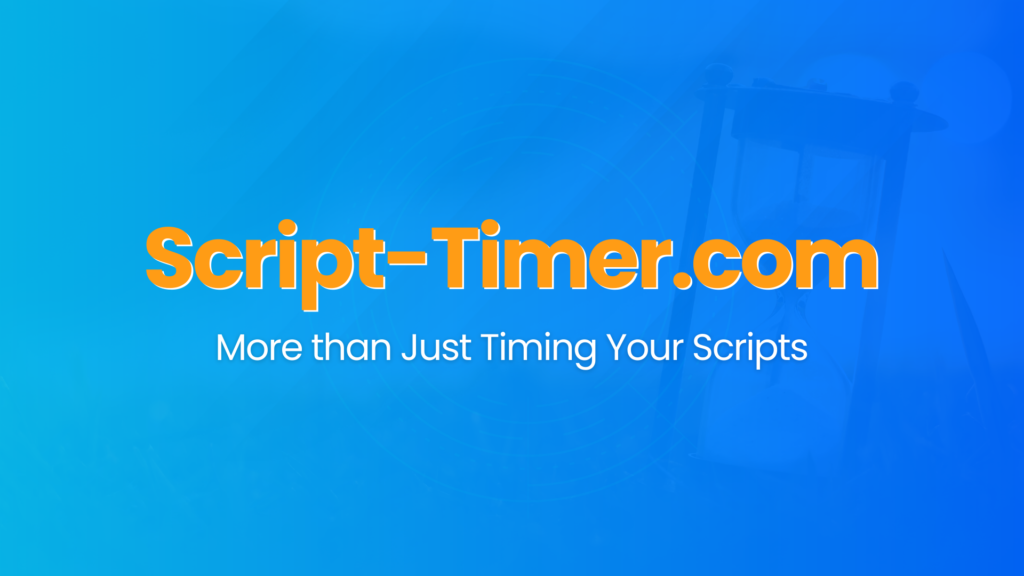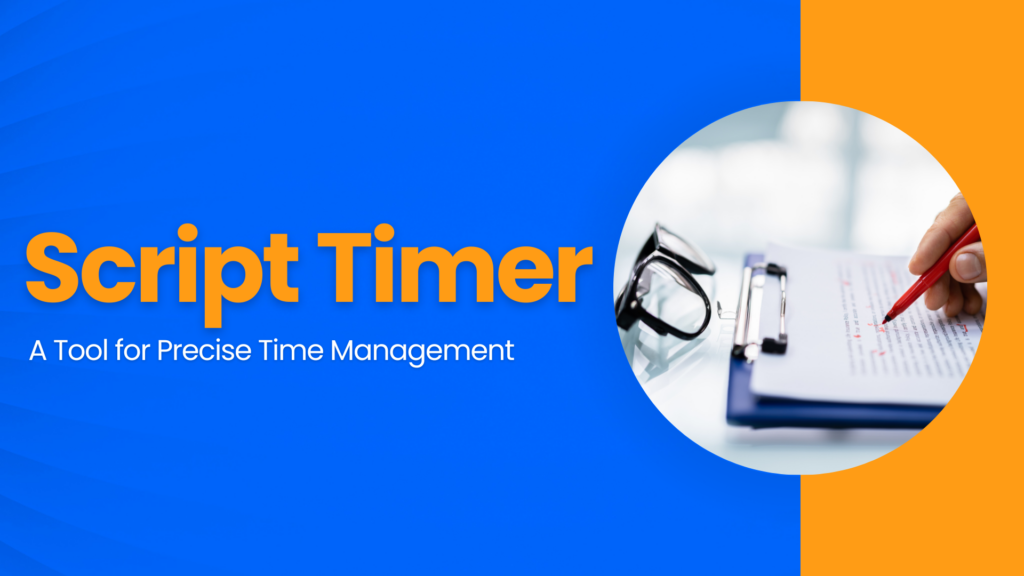In the vast expanse of scriptwriting and presentation, there’s one tool that’s been making waves recently: the script timer. While it’s true that a script timer can be immensely beneficial, it’s essential to remember that it’s only one cog in the vast machinery of successful scripting. Let’s delve into why this is and explore five vital concepts that, combined with a timer, can elevate your scripting game.
1. The Power of Script Timing: An Anecdote
Imagine for a moment you’re a playwright. The grand premiere of your play is in two hours, and you’ve just realized that the entire thing runs 20 minutes over! Panic sets in. You wish you’d used a
script timer to ensure the pacing was just right.
However, the story doesn’t end there. A script timer might’ve helped you identify the duration, but what about the content, flow, or dialogue pacing? This brings us to our first key concept: Quality over Quantity. The duration of a script is crucial, but the quality, depth, and engagement it offers are even more vital.
2. The Narrative Arc: Complementing the Script Timer
Using a script timer helps you track how long your script runs. Yet, a successful script also needs a compelling narrative arc. Think of this as the heartbeat of your script. It comprises the exposition, rising action, climax, falling action, and resolution. No matter how well-timed your script is, without a narrative arc, it’ll feel flat and uninspiring.
3. Script Timer and Consistency
Remember those workouts you used to do? The ones where you’d set a timer to maintain consistency in your reps and sets? Just as you needed both the timer and the correct form to be effective, a script needs its timer and a consistent tone, voice, and style.
Being consistent ensures that your audience remains hooked. When you combine this with tips and tricks to maximize your productivity with a script timer, you’re on your way to scripting nirvana.
4. Adaptability: Beyond a Timer
Your timer indicates that your YouTube video script is 10 minutes. Perfect. But what if the platform’s algorithm suddenly starts favoring 7-minute videos? Adaptability is key.
Just as businesses pivot based on market trends, scripts should too. Having a flexible script ensures you can easily trim or expand sections while still retaining its essence. This is where resources like the benefits of using a script timer for YouTube scripts become invaluable.
5. Feedback: The Pillar of Refinement
Lastly, no tool, be it a timer or the most advanced AI, can replace human feedback. Sharing your script with peers, mentors, or test audiences and gaining feedback is like gold dust. It helps you understand how your audience might perceive your message.
Think of it like this: You’ve got a delicious recipe (your script), and the oven timer ensures you don’t overcook it. But wouldn’t you still want someone to taste it and tell you if it needs a pinch of salt?
Conclusion: The Holistic Approach to Scriptwriting
Scriptwriting is both an art and a science. While tools provide a scientific measure of the length and pacing of your content, the art lies in weaving narratives, maintaining consistency, staying adaptable, and valuing feedback.
By understanding the broader picture and viewing the script timer as one of the many tools in your scriptwriting toolkit, you can create scripts that not only resonate with your audience but also stand the test of time.
For more insights and best practices on scripting, don’t forget to check out our blogs and explore topics like mastering public speaking.
Three things you can do to keep fast track of your learning:
- Connect on Linkedin as I share valuable lessons weekly.
- Fast track your learning: Get the 6 Steps plus 15 years of Hollywood and Agency experience in one Workshop and masterclass.
- Use the template: 18 Scripts that Sell (also included in every Script-Timer plan.)





